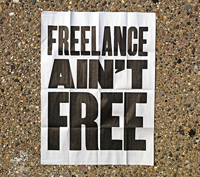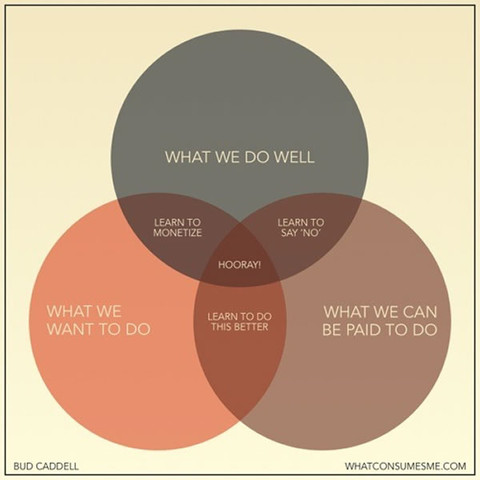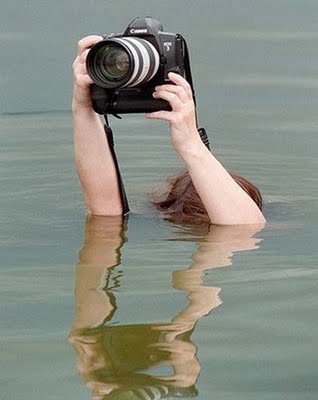
Turning Down Work Will Make You More Successful
Walking away from potential jobs may be the best thing you can do for your creative career.
The jobs you’re taking may be costing you. Whether you’re a photographer, video editor, director or other creative professional, knowing when to say no to certain jobs will increase the quality of your overall work, make you better skilled and keep your career focused. Follow this guide for knowing when to walk away.
No, Low or Deferred Payment
Would you ask a chef to work for free? No. What about his apprentice, the dishwasher? Of course not. They’re also getting paid. So, why then do people feel it’s ok to ask creative professionals to work for free under the guise of “good exposure”? Working for free degrades your value…even if you’re just dipping your toes into the business. If there’s a project you feel passionate about, a video you’d like to create or a person you’d like to photograph AND you’re willing to do it for free, that’s your prerogative. If you choose to take on one of these jobs, make sure the client knows it’s of personal interest to you, not business. Remember, “The only form of currency your mortgage company accepts is cash. Follow that lead.” (from PunkRockHR.com).
Deferred payment rarely comes through. Don’t be swayed with promises of big bucks later when the project sells. If the organizer doesn’t have the money to pay you to work on their project, they surely don’t have the money to make it a financial success.
Negotiate rates that seem too low. Walk the client through the process of what it’s going to take to get the job done (often clients are unaware of the time it takes to edit photos or edit videos – “how hard could it be?”) If the price isn’t right, walk away.
How to Create Your Dream Job – take note of “Learn to say NO”
from WhatConsumesMe.com

Working for Friends and Family
“But what about my friends and family?
How can I tell them I won’t help them for free?”
Most video editors or photographers have been approached by family or a friend and asked for help with a project – no doubt, it had something to do with someone’s wedding. Well there’s a solution for that. Give them a discounted “friends and family” rate. Your creative skills are your livelihood. Although you’d love to help everyone you know with their personal projects, the fact of the matter is doing it for free costs you money. Any time you’re doing a project for free you’re taking your time away from paying work.
It can be easy to fall into a cycle of doing work for friends – photographers especially can have trouble with this. Say, your friend wants you to take a picture of their baby for free. Take them up on it and you may very well be asked to take the kids picture every year until they turn 18. Don’t fall into this “free” cycle.
Avoid Over Committing

In over your head? Turn down work when you have too much. Being overcommitted means you can’t do any one thing to it’s full potential. Instead be choosy about which work you take on and you’ll produce higher quality work. This holds true for video editors, photographers and any other creative profession, but all too often it’s ignored. We get caught up in making money and thinking the amount of work we load on our backs will somehow lead to greater success. This isn’t rocket science. You only have so much time and energy. Optimize how you use it.
Wrong Style or Subject
There’s value to staying focused on a niche style or subject. If you want to be a music video editor, your time editing a wedding will likely not well be served. Avoid work that doesn’t feed your professional goals. That’s not say that every creative professional hasn’t had to do work outside their interest (especially starting out), but making a long-term habit of this will have you running in place. If your work isn’t focused, you aren’t focused on your future.
Avoid Over Promising
 The proliferation of online design, photography and video sites means that clients can usually find examples of the type of work they want done. This may set lofty goals. For instance, all of the most liked family photos on Pinterest may provide good inspiration for a photography shoot, but it also may set unrealistic expectations for your client.
The proliferation of online design, photography and video sites means that clients can usually find examples of the type of work they want done. This may set lofty goals. For instance, all of the most liked family photos on Pinterest may provide good inspiration for a photography shoot, but it also may set unrealistic expectations for your client.
Before you agree to a project make sure you can complete what the client is after. If it’s out of your skill level or requires a major time commitment you need to say so up front. It’s not your client’s job to know how much time and money goes into creating a piece of creative work, but it’s your job to inform them. Over promising a job will insure client dissatisfaction, only hurting your business and career trajectory.
Avoid Price Matching
Set your value and stick to it. Price matching will erode your value and take a hit on your bottom line. A client that asks you to price match may be an indicator of other problems (do they have money problems, will they pay on time, are they just hard to deal with?). Agreeing to price match may bring you undesirable clients.
Bartering is Bad Business
Bartering is never 50/50. With cash there’s no question about what you’ll receive for your work. It just keeps things cleaner. With bartering you’re more at risk for one party to walk away dissatisfied and feeling ripped off.
Better Projects & Career Growth
If the project isn’t a good fit for you, be up front with your client and offer referrals of people or businesses that may be better suited for the job. This is an added benefit to you, as it builds up a personal network of creative colleagues that may send work your way if they are ever in the same position.
Don’t be afraid to turn down projects. It’s important for keeping your career focused and improving the quality of your work. Whether you are a video editor, photographer or other creative professional, keeping the focus on creating high quality work will lead to better projects, career growth and hopefully, increased personal satisfaction.







